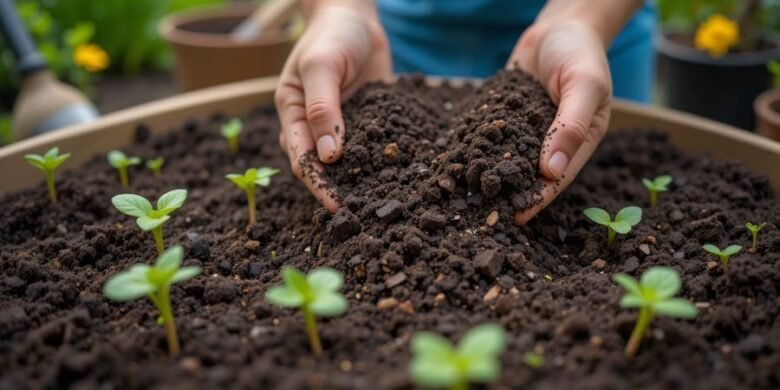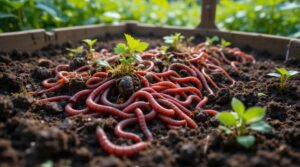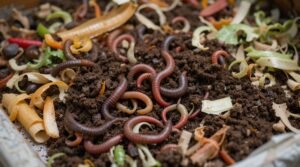Introduction
Healthy soil is the foundation of sustainable agriculture and gardening. Worm castings, often referred to as “black gold,” are a natural and powerful way to enhance soil fertility and structure. These nutrient-packed byproducts of vermicomposting are a gift from nature’s tiniest farmers—worms. But how exactly do worm castings improve soil health? Let’s dive into the science and practical benefits of this organic miracle.
What Are Worm Castings?
Worm castings are the excretions of earthworms after digesting organic material. Packed with essential nutrients and beneficial microorganisms, these castings are more than just decomposed matter—they are a complete soil amendment that works wonders for plants and ecosystems.
Key Ways Worm Castings Enhance Soil Health
1. Rich in Nutrients
Worm castings are a natural fertilizer loaded with nitrogen, phosphorus, potassium, and trace minerals. Unlike synthetic fertilizers, these nutrients are released slowly, ensuring plants receive a steady supply without the risk of over-fertilization.
Example:
- Nitrogen promotes lush, green growth.
- Phosphorus supports strong root development.
- Potassium enhances disease resistance and overall plant vigor.
2. Boosts Microbial Activity
Worm castings are teeming with beneficial microbes that play a critical role in breaking down organic matter, making nutrients more accessible to plants. These microbes also help suppress harmful pathogens in the soil, creating a healthier environment for roots.
3. Improves Soil Structure
The fine, crumbly texture of worm castings enhances soil aeration and water retention. This is particularly beneficial for heavy clay soils that compact easily or sandy soils that drain too quickly. Better soil structure means stronger root systems and healthier plants.
4. Balances Soil pH
Worm castings have a near-neutral pH, helping to balance acidic or alkaline soils. A balanced pH ensures optimal nutrient availability, allowing plants to thrive without additional amendments.
5. Suppresses Plant Diseases
Research shows that worm castings can reduce the occurrence of certain plant diseases. The beneficial microorganisms in the castings outcompete harmful pathogens, acting as a natural biocontrol agent.
Practical Ways to Use Worm Castings in Gardening
1. As a Top Dressing
Sprinkle a thin layer of worm castings around the base of plants. This method slowly releases nutrients into the soil with each watering.
2. Mix Into Potting Soil
Combine worm castings with potting soil to create a nutrient-rich medium for seedlings and container plants.
3. Brew Worm Tea
Create a liquid fertilizer by steeping worm castings in water for 24-48 hours. Use the resulting “worm tea” to water plants or spray directly on leaves for a nutrient boost.
4. Enhance Compost
Mix worm castings into your compost pile to accelerate decomposition and enrich the final product.
My Personal Experience
When I first started using worm castings in my vegetable garden, the results were astounding. My tomato plants grew taller, the leaves were greener, and the fruit yield doubled compared to previous seasons. The soil itself became easier to work with, holding moisture better while staying well-aerated. It felt like my garden came alive in a whole new way!
Tips for Maximizing the Benefits of Worm Castings
- Use fresh worm castings for the highest microbial activity.
- Store castings in a cool, dry place to prevent nutrient loss.
- Avoid overusing—1-2 cups per square foot is typically enough.
Conclusion
Worm castings are a natural powerhouse for improving soil health. Their ability to enrich nutrients, enhance microbial activity, and improve soil structure makes them an invaluable tool for gardeners and farmers alike. By incorporating worm castings into your soil management practices, you’re not just feeding your plants—you’re nurturing the entire ecosystem beneath them. Embrace this sustainable, organic solution and watch your garden thrive like never before!




